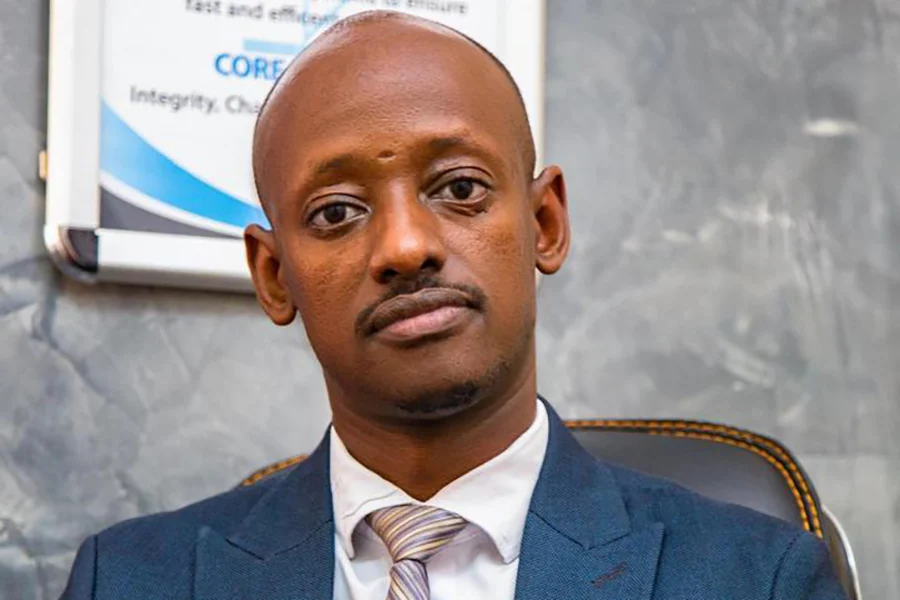Your Money Needs Discipline, Not Just Dreams

There’s nothing worse than looking back at your life and realising you misused money that could have changed your future.
Last week, we talked about giving your money a job. I hope your wallet had a productive week. But now, let’s talk about something even more crucial—discipline. Because, let’s be honest, we don’t just have a money problem in Uganda. We have a money management problem.
I see it every day. People making decent money but living like they’re broke. Every end of the month, it’s like a financial funeral—wallets looking malnourished, mobile money accounts as dry as the Sahara. And then the cycle starts again.
Payday arrives and we celebrate like it’s Christmas. A few nyama choma outings, a random online purchase, a ka road trip to Jinja… and before you know it, your bank balance is sending you warning signals.
Let’s be real. Money isn’t the issue. It’s how we handle it. Everyone wants financial freedom, but do we really act like we want it?
We dream of waking up one day and finding that our money has multiplied by itself. But money doesn’t do magic tricks—it follows instructions. And if you don’t give it strict, disciplined instructions, it will wander off like a lost boda guy with no GPS.
I once met a boda rider from Nansana. Hardworking guy. Rain or shine, he was on the road, making a decent Shs1.5 million a month. But every single month, he was broke by the 20th.
He came to me frustrated. "Boss, I make money, but I don’t know where it goes!" So we sat down and examined his spending habits. Turns out, he had three financial leaks.
First, impulse buying—if he saw something nice, he bought it, whether he needed it or not.
Second, social spending—every weekend, he was treating the boys, paying for drinks, contributing to every ka ‘send-off’ and ‘kukyala’ in the WhatsApp group.
Third, borrowing with no plan—taking quick loans to cover his ‘enjoyment gaps.’
We ran the numbers. In a single month, he had wasted over UGX 700,000 on things that didn’t build him. And yet, he had been saying he couldn’t afford to save or invest. The truth was painful, but it set him free.
We created a budget, made a simple rule—"If it’s not in the plan, don’t buy it." Three months later, he had saved Shs2 million. Just like that. No extra income, just fewer financial mistakes.
This is where many of us go wrong. We think the problem is not having enough money. But even if you were earning Shs10 million a month, without discipline, you’d still be broke.
Money without management is like a boda without brakes—you will crash eventually.
There’s nothing worse than looking back at your life and realising you misused money that could have changed your future. That Shs2 million that disappeared in entertainment? It could have been a plot of land in Mukono.
That Shs500,000 spent on a "big people’s" weekend? It could have been school fees for your child. That Shs1 million you gave to a friend who never paid back? It could have been capital for a side hustle.
I know it’s tempting to spend freely. Life is hard, and we all want to enjoy the little we make. But here’s a fact—short-term excitement leads to long-term regret. And regret is expensive.
I once heard an old man say, "When you’re young, you think money is for spending. When you’re old, you wish you had saved it." It hit me hard.
So what’s the way forward? Start treating your money like an employee, not a tourist. Every shilling you get should have a clear purpose.
If you don’t direct it, it will find its own direction—and usually, that’s straight out of your hands. Before payday, have a plan. Allocate every coin before it even lands in your account. If you wait to plan after receiving money, it’s already too late.
And let’s talk about saying "No." Some of us are financially struggling, not because we don’t make enough, but because we can’t say no. Every ka wedding, every ka contribution, every ka "help me out" request, we’re sending money.
But guess what? When you’re broke, the same people won’t return the favor. Be generous, yes, but don’t be reckless.
"I don’t have" is a full sentence. Use it.
Another important rule—pay yourself first. Before you buy that expensive meal, before you send money to your squad, save something for yourself. Think of it like this: every shilling you save is a bribe to your future self to say, "Thank you."
Finally, track every shilling. You don’t need a fancy app. Just write things down. If you don’t track where your money goes, you’ll always be confused about why it disappeared.
Look, I’m not here to tell you not to enjoy life. Life is for living. But there’s a difference between enjoying responsibly and spending foolishly.
One leads to freedom. The other leads to stress. Five years from now, will you be proud of how you handled your money today? If not, it’s time to change. Because money, like a child, grows up to be exactly what you train it to be.
Your future self is waiting. Will they thank you, or blame you? The choice is yours.
Mr Jonan Kandwanaho is the president of the Money Lenders Association of Uganda



0 Comments